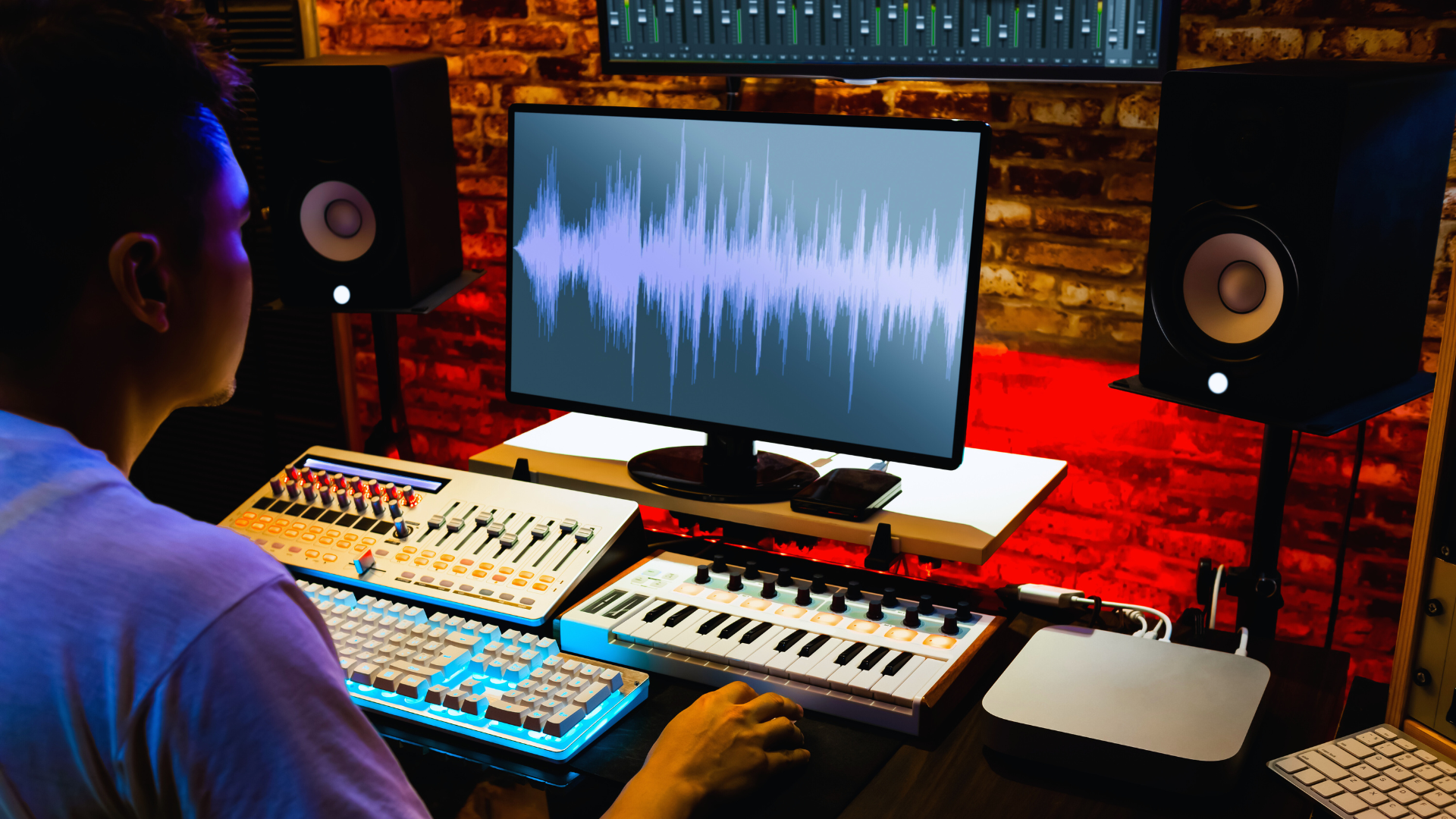If you are about to take your exams or any type of test, then you are probably going through a lot of emotions at the moment and are trying your best to fit as much of your revision in as possible so you can ace it.
If you are about to start your study sessions and you want to find ways that will help strengthen your brain’s memory so you can walk into your exams feeling confident and relaxed, then you may be interested to know that playing music can help a great deal.
Today, we will discuss the benefits of listening to music to help improve cognitive function which will support healthier brains not only for studying but in later life too.

Why is Music Beneficial?
Whether you are studying music or you are using music to study, there is a lot of benefits that come with listening to/playing music.
Music activity has been noted as being a cognitive exercise, which means, those who study music or they have musical training early will more than likely have better memory and other positive effects that will contribute to physical health which can stave off debilitating diseases such as Dementia.
Music helps in multiple ways, and musical activity serves as an important part of positive brain function.
Whilst this is something that parents should think about exposing their child to at a young age, with playing the guitar, drums, piano, etc., today, we will be focusing on how listening to music will help students with their studying.
Either if it is for high school or university life, music has a far reach for all to benefit from.

Does The Type of Music Matter?
You may have heard that listening to classical music is the best music for studying, or instrumental music, as they do not have lyrics for people to focus on so they are seen as calming music that can help stimulate the brain when retaining information.
However, it does depend on the individual and what music engages their brain to help them with their academic performance.
What Reactions Can Students Have?
Some may find that hip-hop music and the different beats the songs have will make students feel engaged with what they are studying.
Cambridge university professors Akeem Sule and Becky Inkster have said that when people listen to genres such as hip-hop music it actually helps people cope well with an uplifting effect.
Others would prefer rap music as the lyrics can help with managing stress and anxiety as well as make people feel determined when studying.
Whether it is upbeat music or calming ear-catching melodies, whatever music activates their brains to help them study is up to them and how they fit it in.

Look at Listening to Different Genres
If you are not too sure what kind of musical compositions would be best, try out different types when you are studying to see which ones engage you more with your revision.
Put on the background music and see if your cognitive abilities are improved or hindered by certain genres.
You Need to Focus Your Attention
You may find that some music will actually distract you when you are studying as the beat might draw you in to just focus on listening to the lyrics.
Music producers know this and they depend on the ‘hook’ of the song to ‘hook’ people in and engage them throughout, so if you are listening to a certain genre and you have realized that the entire song has gone by without you reading a word, that music is too engaging for you and you will need to look elsewhere.

The 5 Benefits of Listening to Music While Studying
There are quite a few benefits of listening to music when you are studying, but today, we will just touch upon five that are seen as the most beneficial for your study sessions so that you understand the positives and can show people that if they hear music from your room, you aren’t slacking off, you are trying to get good grades.
Helps Your Concentration
One of the most important things when it comes to studying is making sure you are concentrating on exactly what you need to study and that you are happy with the information you are retaining.
Reading is a cognitive exercise, and it needs our full attention to help us take in what is in the books or on the screen.
Distractions need to be minimal when it comes to studying, as outside noises as well as television, or other people, can actually make it harder to focus, and you may find that you have been re-reading the same paragraph again and again.
If you are someone who finds even the slightest noise distracting, then listening to something calming would be best in this instance so that you are not too overloaded and can still pay attention to the information you are reading.

Stimulates The Brain
If you have been revising for hours on end, the brain can get quite sluggish and your eyes will become tired, plus you may not even be aware that your brain has stopped taking in what you are reading.
Taking a break to listen to music or play games such as puzzles, can rev your brain up again and get you back into study mode once again.
The stimulation can get you over the hump, and if the music is helping you feel more awake, you can keep it on when you get back to the books so that you can continue that engagement.

Stops You From Being Bored
It would be hard to find people who love to study all the time and get invigorated sitting in silence and putting their heads into a book for hours on end.
It can be very boring for quite a lot of people, and if it is their fifth study session of the day or the tenth book that they are reading through, that boredom can be very loud.
Popping on some music (blasting it if you are alone), can quieten down that boredom and get you feeling pumped up again to keep going.
You may want to try out hip-hop or rap music that will use beats to get you going, or you could try EDM/drum and bass if the sounds shake you free of the monotony.
As long as it doesn’t distract you from your work, use any kind of music that will dust away the boredom and the dullness.

Lowers Stress Levels
Stress can be pretty high around exam time, and the pressure that students feel is off the charts.
If you are feeling stressed and you can’t stop thinking about your exams and what you are going to do, that can stop you from studying and actually make things worse for you.
Putting on some music can reduce your stress levels and get you back your concentration.
Music helps with making us feel upbeat as well as relaxed (depending on the genre), it can give us a carefree attitude that stops us from overthinking too much and puts our mind into a happier mode.
If stress has been stopping you and is causing mental pain, put on some music that will shake you out of that mindset so you can get back to work and give yourself a good chance at doing well.

Supports Your Motivation
We all need a motivational push every once in a while, so if you are finding that lack of motivation is taking over, music could be your savior.
Do Some Exercise
Music releases dopamine in the brain to help with motivation and energy. You can combine some upbeat music with a quick walk around the block before you study to get yourself going.
Energy and motivation go hand in hand, so if you need to get out of your room and breathe in some fresh air before you shut your door behind you again and hit those books, then go out and do it.
Exercising can be great not only for your body but your mind as well. You might want to split up your study sessions with gentle exercises to wake you up, nothing too strenuous that will tire you out, as you still need to study.
Conclusion
After reading through these benefits, you should now know how music can help you study and what music may be best for when you are preparing for your tests.
It is a tense time during exam season, so take your time and allow yourself to have breaks so that you don’t overload your brain or feel overwhelmed.



